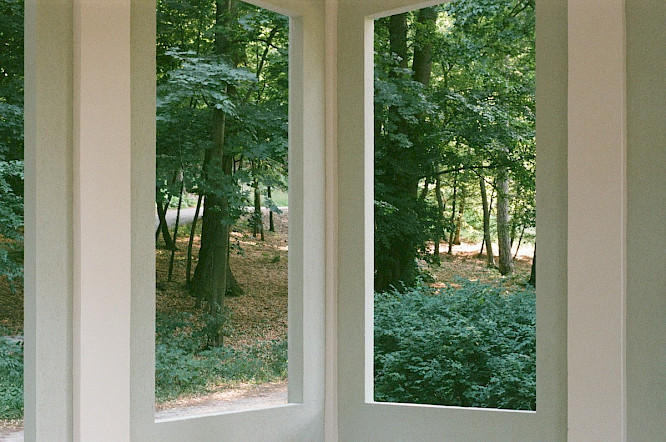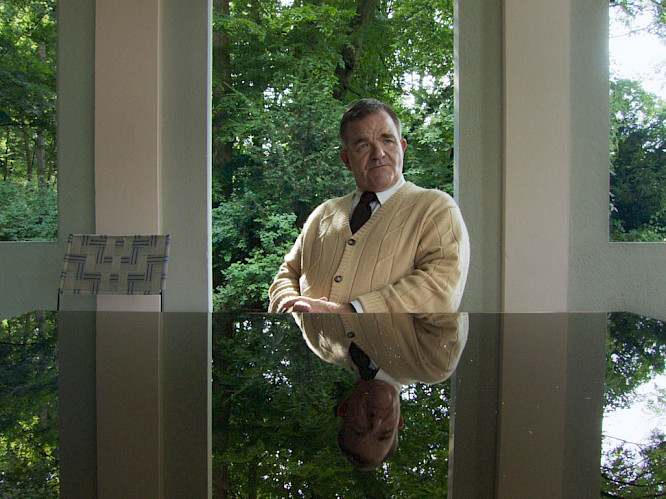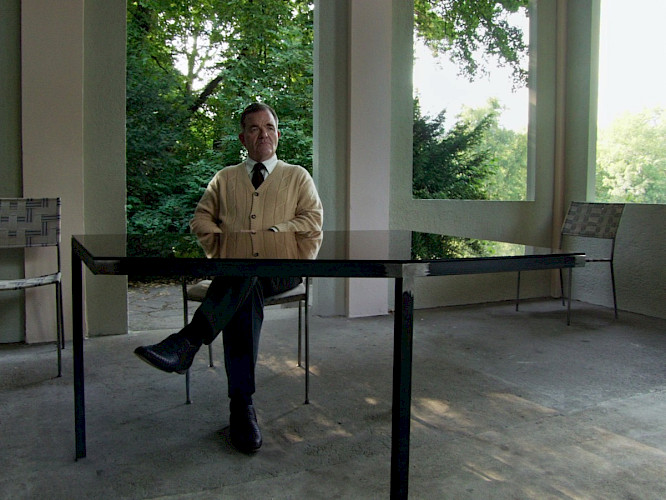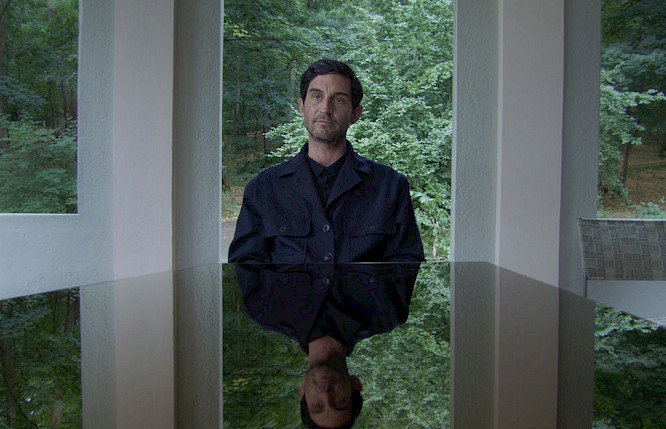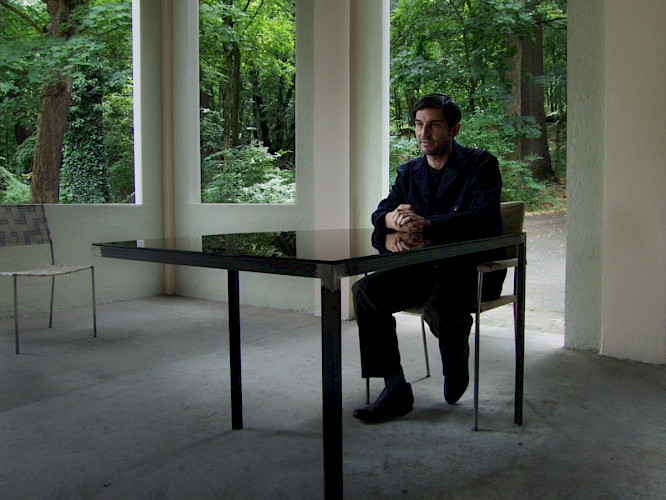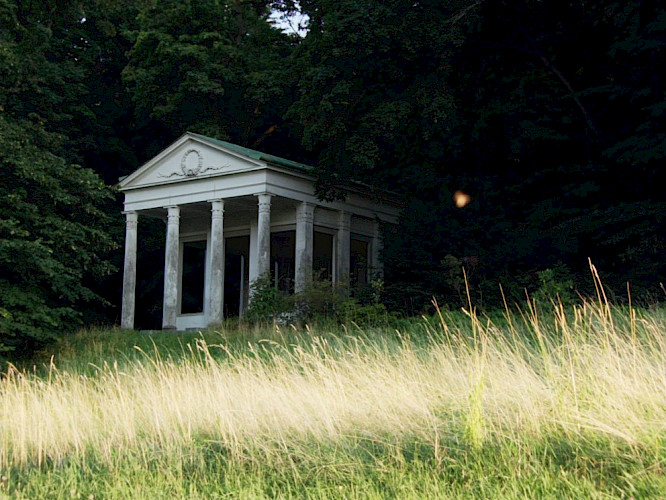Synopsis
How can cinema engage with complicity in crimes against humanity, extreme violence and state terror without conniving in it? De Facto finds answers to this question via two actors, a precisely compiled collage of texts and a deliberately reduced setting.
For her second feature-length film, director Selma Doborac turns her attention to a difficult question: How can cinema grapple with perpetrators, extreme violence and state terror without conniving with them?
DE FACTO rejects direct representation to this end, nor is it remotely interested in re-enactment, whereby real perpetrators reproduce their crimes in front of the camera. Instead, the director engages two actors, Christoph Bach and Cornelius Obonya, places them in a pavilion in a Viennese park at a table designed by artist Heimo Zobernig and has them deliver texts in long, precisely composed shots and in isolation from one another, the out-of-frame addressees of which can be inferred. Passages from verdict statements, perpetrator statements, witness testimonies, confessions by whistleblowers and the occasional philosophical text are woven together. At times, it is almost unbearable to listen to. DE FACTO is undoubtedly challenging for viewers, but not as an end in itself; by pursuing an analytical interest, it creates possibilities for insight. (53 Berlinale Forum @ 73 BERLINALE, catalogue text by Cristina Nord)
